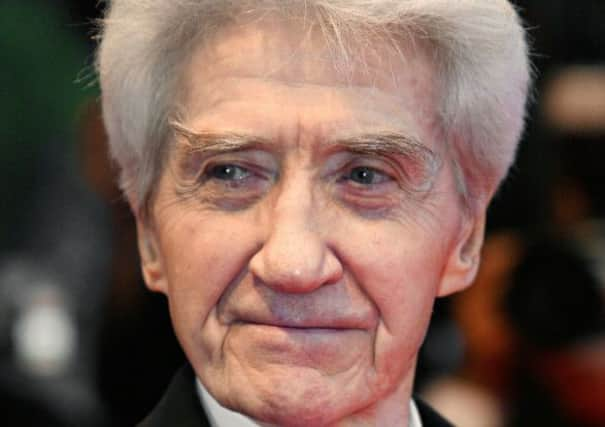Obituary: Alain Resnais, film director


In the 1950s, Alain Resnais established himself as the leading French film director, pioneering cinema that was aggressive and socially aware.
The Nouvelle Vague (New Wave) group were like-minded innovators who refused to abide by the conventions of the status quo and wanted to make films about contemporary social events and relationships.
Advertisement
Hide AdAdvertisement
Hide AdResnais and his contemporaries were out to sweep aside the costume dramas that prevailed and introduce radical, experimental real-life dramas that reflected the post-war disquiet that pervaded French society.
Resnais was a member of the Rive Gauche section of the New Wave – the Rive Droite was more traditional and had stronger backing. Resnais was a more bohemian, experimental figure, and financially less secure.
They frequented the cafés of Montparnasse along with literary figures like Gide and Sartre. Resnais captured their socialist views in films that included Hiroshima Mon Amour and Last Year at Marienbad.
His last film, The Life of Riley, based on an Alan Ayckbourn play, premiered at the Berlin Film Festival last month, where it won the Silver Bear Alfred Bauer Prize for a feature film that opens new perspectives.
His career spanned sixty years and his genius as a film-maker and social commentator never faltered. Resnais remained inventive and gave all his movies a stamp that was personal and distinctive.
He spoke at the Cannes Film Festival in 2012, saying that he made films “for myself: like DIY. It’s like a laboratory experiment in which you mix things without knowing what the result will be.”
Resnais studied at a film school in Paris, but made his first film when he was 13, based on the storybook villain Fantomas.
He worked as a film editor, making several documentaries and short movies – notably Night and Fog (1955), which highlighted the Nazi concentration camps.
Advertisement
Hide AdAdvertisement
Hide AdHiroshima Mon Amour was his first full-length film and is now recognised as a classic of the New Wave movement.
Made in 1959, Resnais based the film on a play by the distinguished playwright Marguerite Duras.
With subtle cinematography and gentle directorship, Resnais intensified Duras’ conversation between a French-Japanese couple about memory and forgetfulness.
He made clever use of flashbacks to tell the story of the Hiroshima bombing without actually depicting it, and the film won an Oscar nomination.
But it was controversial in that it dealt with the atom bomb and its use against Japan. Significantly, it was not considered for an award at the 1959 Cannes Film Festival in case it upset the US government. Many consider it the greatest of Nouvelle Vague films, in its originality and controversy. Critics have called it “the first modern film of sound cinema” and last year it was shown at the Cannes Festival, as part of the Cannes Classic section.
In 1961, Resnais directed a dream-like movie which has confused film experts for years. Last Year at Marienbad has a wonderfully enigmatic narrative, in which Resnais deliberately misleads the audience as to what is the truth and what is make-believe. Consequently some hail it as a great film, while others dismiss it as incomprehensible. Delphine Seyrig, dressed magnificently throughout by Chanel, delivers a mesmerising performance as A – Resnais having added to the confusion by not providing any of the characters with a distinctive name.
Muriel followed in 1963 and it, again, explored how memory can influence the present. It made reference to the hugely controversial subject of the French attitude to the war in Algeria, which at the time divided the country.
Seyrig again played the influential central role of a woman obsessed with a teenage lover. The film was a disappointment at the box office but within a few years had become a cult classic.
Advertisement
Hide AdAdvertisement
Hide AdThose three films made Resnais a director of real consequence, and while his films in the Sixties lacked the political backbone of earlier years (although many consider Stavisky, with music by Stephen Sondheim and starring Jean-Paul Belmondo, undervalued), he returned to cutting-edge drama with Providence in 1974.
The English-language movie had a script by David Mercer and starred Sir John Gielgud and Dirk Bogarde. It has a magisterial quality, and Resnais depicts Gielgud’s near-death and bitter character with a strong slice of caustic humour.
Resnais created for Gielgud something very far from the classical character that the public would have expected, with the actor swearing like a trooper, spitting out four-letter words with venom and obvious relish.
The film was a huge success and won many awards. For his part, Gielgud loved the experience and called Resnais “the most English of French directors”.
Resnais continued to direct films and his reputation along with such New Wave directors as Jean-Luc Godard, Jacques Rivette and François Truffaut grew over the years.
His work was recognised for its originality, imagination and perplexing honesty. Throughout his career Resnais maintained the ability to astound, beguile and confuse.
He received many cinema awards including a lifetime achievement award at the Cannes Film Festival in 2009.
Resnais married twice, and is survived by his second wife, Sabine Azema.
ALASDAIR STEVEN